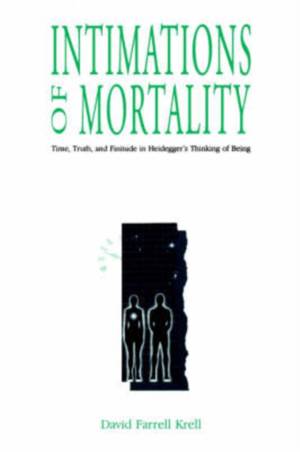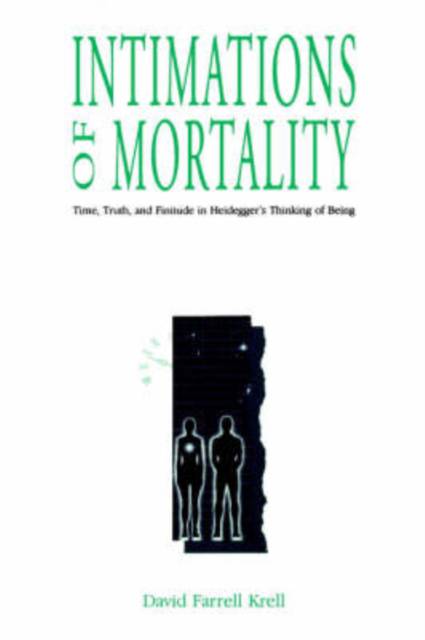
- Afhalen na 1 uur in een winkel met voorraad
- Gratis thuislevering in België vanaf € 30
- Ruim aanbod met 7 miljoen producten
- Afhalen na 1 uur in een winkel met voorraad
- Gratis thuislevering in België vanaf € 30
- Ruim aanbod met 7 miljoen producten
Intimations of Mortality
Time, Truth, and Finitude in Heidegger's Thinking of Being
David Farrell KrellOmschrijving
Heidegger's thinking has an underlying unity, this book argues, and has cogency for seemingly diverse domains of modern culture: philosophy and religion, aesthetics and literary criticism, intellectual history and social theory. "The theme of mortality--finite human existence--pervades Heidegger's thought," in the author's words, "before, during, and after his magnum opus, Being and Times, published in 1927." This theme is manifested in Heidegger's work not "as funereal melodramatics or as despair and destructive nihilism" but rather "as a thinking within anxiety."
Four major subthemes in Heidegger's thinking are explored in the book's four parts: the fundamental ontology developed in Being and Time; the "lighting and clearing" of Being, understood as "unconcealment"; the history of philosophy--with emphasis on Heraclitus, Hegel, and Nietzsche--interpreted as the "destiny" of Being; and the poetics of Being, explicated as the "fundamental experience" of mortality.
Neither an introduction nor a survey, this book is a close reading of a wide range of Heidegger's books, lectures, and articles--including extensive material not yet translated into English--informed by the author's conversations with Heidegger in 1974-76. Each of the four subthemes is treated critically. The aim of the book is to push its interrogations of Heidegger's thought as far as possible, in order to help the reader toward an independent assessment of his work and to encourage novel, radically conceived approaches to traditional philosophical problems.
Specificaties
Betrokkenen
- Auteur(s):
- Uitgeverij:
Inhoud
- Aantal bladzijden:
- 216
- Taal:
- Engels
Eigenschappen
- Productcode (EAN):
- 9780271029214
- Verschijningsdatum:
- 15/04/1991
- Uitvoering:
- Paperback
- Formaat:
- Trade paperback (VS)
- Afmetingen:
- 152 mm x 229 mm
- Gewicht:
- 322 g

Alleen bij Standaard Boekhandel
Beoordelingen
We publiceren alleen reviews die voldoen aan de voorwaarden voor reviews. Bekijk onze voorwaarden voor reviews.











